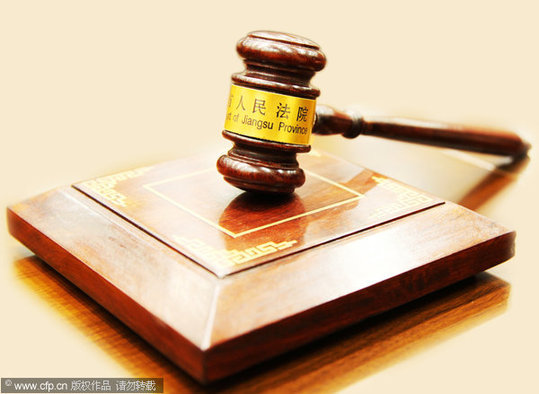Rights body must not ignore China's ongoing progress
Updated: 2015-02-07 08:00
By Meng Qingtao(China Daily)
|
||||||||

The Human Rights Watch annual report has continued its practice of criticizing the Chinese mainland and turning a blind eye to the progress it has made on the human rights front.
The judicial reform over the past year has improved human rights protection across the country. It has helped correct several cases in regions - from Guangdong, Fujian and Hebei provinces to the Inner Mongolia autonomous region - which had been wrongly dealt with. The officials responsible for the botched-up cases have been sacked and put under investigation, and the victims compensated. All this shows the central authority's resolve to defend judicial and social justice.
In October, the Fourth Plenum of the 18th Central Committee of the Communist Party of China drew the road map of deepening judicial reform, which is necessary to keep on track the economic reform to facilitate the replacement of the rule of power with the rule of law. The judicial reform has also tightened regulation and supervision of judges' discretionary powers and strengthened people's right to know, speak, defend and move court.
Moreover, thanks to the promotion of the rule of law, a person or entity is now considered innocent until proved guilty and no evidence or confession obtained through illegal means is acceptable in a court of law.
The judicial reform has established the supremacy of the law over administrative organs, and helped the authorities issue a "negative list" that restricts government powers and prevents officials from trading power for personal gains. Nearly 400 rules, policies and regulations of the Party and government have been annulled or abolished to make way for the rule of law.
Besides, no one is considered to be above the law anymore. Government officials now dare not interfere with the judicial department's work, for even officials who break the law while handling cases can be prosecuted. And the country's leadership has decided to establish a mechanism to judge the legitimacy of major decision-making in governments and institute an accountability system for the major decisions taken (including past decisions).
More importantly, the Supreme People's Court will set up circuit and cross-administrative regional courts to deal with cross-provincial and cross-regional cases, and to allow prosecutors to undertake public-interest litigation. Also, local courts will now be administered by provincial authorities to prevent city and county governments from interfering in their work.
- Global health entering new era: WHO chief
- Brazil's planning minister steps aside after recordings revelation
- Vietnam, US adopt joint statement on advancing comprehensive partnership
- European border closures 'inhumane': UN refugee agency
- Japan's foreign minister calls A-bombings extremely regrettable
- Fukushima impact unprecedented for oceans: US expert

 Stars of Lijiang River: Elderly brothers with white beards
Stars of Lijiang River: Elderly brothers with white beards
 Wealthy Chinese children paying money to learn British manners
Wealthy Chinese children paying money to learn British manners
 Military-style wedding: Fighter jets, grooms in dashing uniforms
Military-style wedding: Fighter jets, grooms in dashing uniforms
 Striking photos around the world: May 16 - May 22
Striking photos around the world: May 16 - May 22
 Robots help elderly in nursing home in east China
Robots help elderly in nursing home in east China
 Hanging in the air: Chongqing holds rescue drill
Hanging in the air: Chongqing holds rescue drill
 2.1-ton tofu finishes in two hours in central China
2.1-ton tofu finishes in two hours in central China
 Six things you may not know about Grain Buds
Six things you may not know about Grain Buds
Most Viewed
Editor's Picks

|

|

|

|

|

|
Today's Top News
Liang avoids jail in shooting death
China's finance minister addresses ratings downgrade
Duke alumni visit Chinese Embassy
Marriott unlikely to top Anbang offer for Starwood: Observers
Chinese biopharma debuts on Nasdaq
What ends Jeb Bush's White House hopes
Investigation for Nicolas's campaign
Will US-ASEAN meeting be good for region?
US Weekly

|

|







